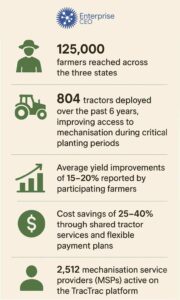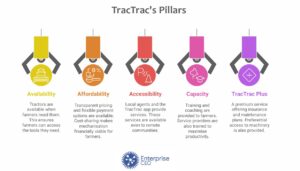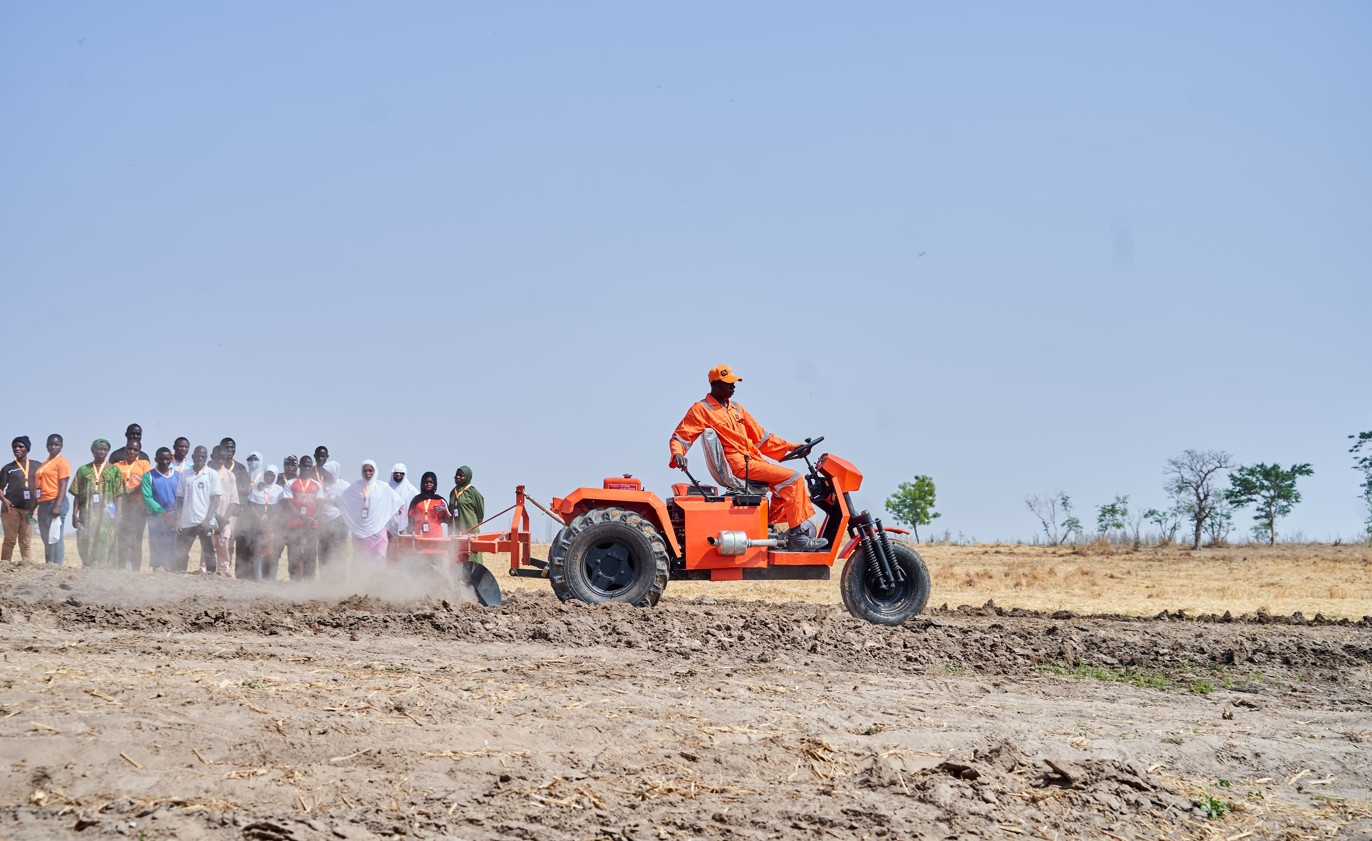The struggles of smallholder farmers in Nigeria are well known: limited access to mechanisation, high costs, and low yields. But for farmers like Hannatu Elisha and Rahab Phillip in Nasarawa State, the story is beginning to change.
On her rice farm in Karu, the 32-year-old Hannatu bends to inspect her crops, remembering the years when her harvests barely sustained her family. “Before now, I harvested about nine bags of rice from my farm,” she recalled.
YOU CAN ALSO READ: Atedo Peterside, Ibukun Awosika, Fela Durotoye, Others for Building Beyond You Conference
“With this training, the Tryctor, and other equipment we’ll receive, I’m confident my yield will increase significantly, possibly up to 30 bags. I just want to say a very big thank you to TracTrac for making this possible.”
In Kokona, Rahab Phillip is proving that agriculture is not a man’s world. “I initially doubted myself. I thought mechanisation was meant only for men,” she admitted. “But being here and participating has shown that I can do even more than I imagined. A very big thank you to the Mastercard Foundation and TracTrac for making this possible.”

For Hannatu and Rahab, access to mechanisation has opened up more than the promise of higher yields. It has restored confidence, broken gender barriers, and given them a sense of dignity in their work. Their stories are emblematic of the quiet revolution underway in Nigeria’s agricultural landscape, driven by TracTrac, a Nigerian company redefining farming for smallholders across the country.
“At TracTrac, our vision is simple: to enable dignity and prosperity for smallholder farmers across Nigeria and Africa,” said Godson Ohuruogu, CEO of TracTrac. “With mechanisation that is accessible, affordable, and reliable, farmers can plan and farm with confidence, regardless of seasonal challenges.”
For decades, the vast majority of Nigerian farmers have been trapped in a cycle of low productivity, manual labour, and unpredictable costs. These challenges have consistently undermined food security while keeping millions of smallholders in poverty. TracTrac is changing this reality by creating an ecosystem that combines demand generation, tractor and equipment access, farmer training, and tailored financing. Unlike many platforms that act as middlemen, TracTrac operates a hybrid model, technology-enabled but rooted in local presence, with agents embedded in rural communities to ensure services reach even the most remote farmers.
The company’s results are striking. In the past six years, TracTrac has reached more than 125,000 farmers across Nasarawa, Kaduna, and other states, deployed 804 tractors, and supported 2,512 mechanisation service providers. Farmers on the platform have reported average yield improvements of 15 to 20 percent, while shared tractor services and flexible payment plans have reduced their costs by 25 to 40 percent. These gains matter deeply for smallholders, many of whom operate at the margins of profitability.
TracTrac’s interventions are not just about machinery; they are about building resilience. Its model is anchored on four pillars, availability, affordability, accessibility, and capacity development. Farmers gain timely access to tractors and implements at transparent rates, while cooperatives and the TracTrac app extend services to rural communities. Training equips both farmers and service providers to maximize productivity, while TracTrac Plus offers premium services such as insurance, maintenance, and preferential machinery access, helping farmers manage risks and secure long-term benefits.

By partnering with more than 280 cooperatives and creating inclusive pathways for women, youth, and persons with disabilities, TracTrac is positioning itself as more than a mechanisation service provider. It is becoming a trusted partner in the long, uncertain journey of farming in Nigeria.
YOU CAN ALSO READ: GTCO Blends Regulation, Strategy with Landmark N365.9 Billion Boost to GTBank
“Our farmers are the backbone of Nigeria’s food systems,” Ohuruogu said. “By reducing the risks and costs of farming, we are not just improving yields, we are securing livelihoods, empowering women and youth, and ensuring that Nigerian agriculture thrives sustainably.”
For Hannatu, the benefits are immediate and tangible: more rice bags to feed her family and sell in the market. For Rahab, the transformation is both practical and symbolic proof that women can thrive in spaces once considered off-limits. And for thousands of smallholders across Nigeria, TracTrac represents a future where farming is no longer synonymous with struggle, but with dignity, prosperity, and resilience.










